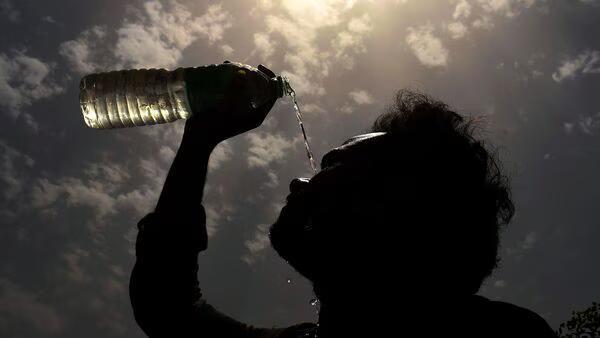
Why did heatwaves begin sooner in India this year?
As the mercury rises across the subcontinent, India is experiencing an unusual phenomenon – heatwaves have begun sooner than expected. The western coast of India, particularly Mumbai, has been hit the hardest, with temperatures soaring to 38.7°C. The Indian Meteorological Department (IMD) has attributed these conditions to an extremely dry winter, which has led to a lack of rain and the persistence of an anticyclone over Madhya Pradesh.
According to a report by India Today, the anticyclone, which is a high-pressure system, has pushed warm easterly winds across the western coast, delaying the usual sea breezes. This unusual weather pattern has resulted in the early onset of heatwaves, leaving many wondering what could be causing this anomaly.
The role of climate change
One of the primary factors contributing to the early onset of heatwaves in India is climate change. Rising global temperatures are causing extreme weather events to become more frequent and intense. India, which is one of the most vulnerable countries to climate change, is experiencing the effects of global warming firsthand.
In an interview with Newsbytes, a meteorologist from the IMD explained that climate change is altering the normal weather patterns, leading to more frequent and severe heatwaves. “The changing climate is causing the jet stream to move northward, leading to more frequent heatwaves in the Indian subcontinent,” the meteorologist said.
Impact on agriculture and daily life
The early onset of heatwaves is having a significant impact on agriculture, with many farmers struggling to cope with the scorching temperatures. Crops are withering away, and farmers are facing significant losses. The heatwaves are also affecting daily life, with people struggling to stay cool and hydrated.
In Mumbai, the heatwaves have led to an increase in water consumption, with the city’s water supply struggling to meet the demand. The city’s residents are relying on alternative sources of water, such as bottled water and tankers, to get through the heatwave.
What can be done to mitigate the effects?
While the early onset of heatwaves is a cause for concern, there are steps that can be taken to mitigate their effects. One of the most effective ways to reduce the impact of heatwaves is to increase the use of renewable energy sources. Solar power, in particular, can help reduce the reliance on fossil fuels and decrease the carbon footprint of the country.
Another way to mitigate the effects of heatwaves is to improve urban planning and infrastructure. Cities can be designed to incorporate more green spaces, which can help reduce the urban heat island effect. Additionally, cities can implement heatwave early warning systems, which can help alert residents to take necessary precautions.
Conclusion
The early onset of heatwaves in India is a serious concern that requires immediate attention. Climate change is playing a significant role in altering the normal weather patterns, leading to more frequent and severe heatwaves. While the impact of heatwaves is significant, there are steps that can be taken to mitigate their effects. By increasing the use of renewable energy sources, improving urban planning and infrastructure, and implementing heatwave early warning systems, we can reduce the impact of heatwaves and ensure a safer and more sustainable future for all.






